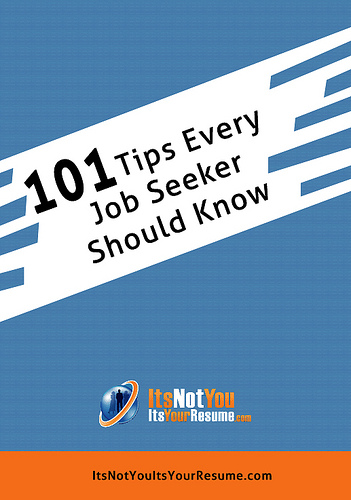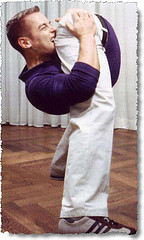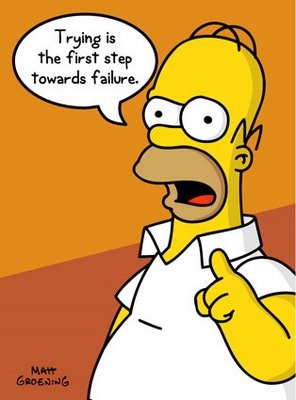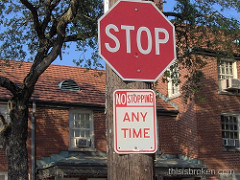Congratulations! You’ve got the interview. Now what? As the saying goes, you never get a second chance to make a good first impression. Follow these tips for a strong, successful interview.
- Look the part. Your credentials may look impressive on paper, but if you arrive for a job interview looking like the embodiment of Casual Friday, chances are you will not be asked back. It may sound old fashioned, but a neat, professional appearance is always apropos for a job interview.
- Practice and prepare. Rehearse with a friend, relative, or co-worker a day or two before the interview to sharpen your communication skills. Practice a few questions and prepare positive responses regarding your strengths and weaknesses. Make sure you’re ready for the standard, “Where do you see yourself in five years?” questions, as well as for the more pointed, “Why do you want this position?” Researching information about the company/position before the interview will help you address these questions intelligently.
- Have the right attitude. I always suggest to job seekers that they display an attitude of “humble egotism”. You want to create the impression that “I’m great, I know I’m great, but I know I have more to learn” and “I want this job more than anything else in the world.” Be sure to show your enthusiasm, dedication, and ambition through your words and body language.
Do not go in with an attitude of “show me why I should work for this company”. The most important goal of the job interview is to get a job offer. If you get an offer, then you can decide if you want to take it. If you don’t get an offer, the decision isn’t yours to make. Remember - you can always think it over and turn it down later, but the name of the game is to get that job offer above all other candidates! - Be prompt and courteous. Please arrive on time, if not a few minutes early, for your interview. Of course, traffic and delays occur, but the professional interview candidate anticipates such events and arrives composed and prepared, not out of breath and apologizing. When you arrive, walk tall, smile, make eye contact, and present a firm handshake.
- Stay calm and sit still! It may seem simple, but it’s important to remember. Try not to fidget in your chair, pick at your cuticles, hum, chew gum, tap your foot or do anything else that might give the impression that you are a nervous, neurotic mess.
- Bring copies of your resume. In addition to your charming, well-coifed self, remember to bring at least two flat copies of your resume to the interview. Job seekers have told me numerous times that they’ve gotten the feeling that the interviewer has never seen their resume or at least does not remember it. Even if the interviewer has seen your resume, feel free to offer another copy so that you can address questions and point out your best achievements while the two of you on the same page, so to speak.
- Stay focused. Try your best to keep the interview on target and focused on you. I can’t tell you how many interviews are conducted by people who are just not that good at interviewing. Lack of experience, lack of interest, over-work, and unexpected scheduling problems are a few of the reasons why the interviewer may not know his rear from his elbow and the poor job search candidate has to suffer the consequences! A confident, focused professional will make a better impression than a candidate who sits back and lets the interviewer throw out random questions.
- Stay in control. If the interviewer asks an open-ended question, “How do you feel about status reports?” try to narrow down the focus by asking a more specific question in return, “Would you like to know how I handle deadlines and maintain an organized data base?” If salary is discussed during the interview, don’t bring up ancillary questions about benefits, personal days, or vacation time. An interview is not the appropriate place to haggle over money — it’s best to conduct salary negotiations only when you actually get the job offer.
- Keep your answers short, sweet, and positive. Answer questions clearly and concisely. Don’t get long winded or meander into personal details. Be prepared to sell yourself in person by highlighting your strengths, your accomplishments on your present or previous jobs, and your eagerness to work for this potential employer. If there are unrelated jobs or gaps on your resume which the interviewer asks you about, be truthful and to the point. No need to apologize for anything, just accentuate the positive, relevant information instead.
- Close with confidence. When the job interview is concluded, stand up and extend your hand, and thank the interviewer for his/her time and consideration of you as a qualified candidate for this position. Leave gracefully - you may ask when the decision is anticipated but don’t offer to call back or give your cell phone and pager numbers - just walk out as confidently as you entered.
|
Click the pic to get a customized solution for your business! |
|---|
| Be sure to look for us on your favorite networks: |
|---|
 |
 |
|---|
| Visit Our Bookstore for Great Values! |
|---|
 101 Tips Every Job Seeker Should Know |
 The Ultimate Online Job Seekers eBook |
 10 Biggest Interview Mistakes |
 10 Biggest Resume Mistakes |
|---|








